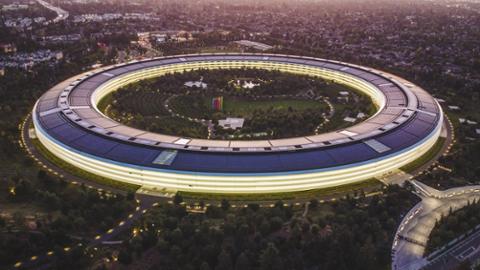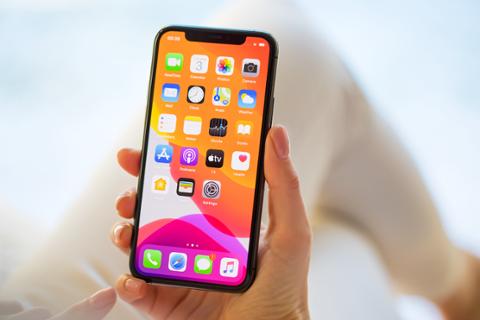Building apps and services for Apple’s iOS ecosystem can be fulfilling… and lucrative. With more than 1 billion active iPhone users worldwide, there’s a massive audience for whatever you create. But how do you actually become an iOS developer?
Learn the Two Key Languages
For years, Apple developers relied upon Objective-C as the main programming language for iOS. But in 2014, Apple introduced Swift, which was intended as a replacement for Objective-C. Swift has rapidly evolved over the past nine years, including a variety of features and tweaks that make it a more robust language. If you’re going to become an iOS developer, knowing your way around Swift and Objective-C is essential.
Before devoting the time and resources to classwork in iOS development, you can see if you’re passionate about the pathway by exploring Apple’s documentation and lessons. Apple’s website features a ton of iOS documentation, including tutorials and sample code. When in doubt, start there.
If you’re relatively new to coding, you should also explore Swift Playgrounds, which gamifies Swift instruction. For those who don’t know anything about coding, this is a great place to start, because it walks you through the basics before getting a little more complicated. (It’s also a lot of fun.)
Prep Your iOS Resume
Whether you’re self-taught or you’ve taken lessons, at some point you’ll hopefully feel ready to go out and secure a job working with iOS code. As you sit down to prepare your resume and other application materials, keep one thing in mind: keywords. Many organizations rely on automated software that scans incoming applications for certain keywords… and will automatically eliminate candidates who don’t include them.
How can you determine the right keywords, though? Start by consulting the job posting, which should list the skills and tools necessary for the job. Make sure to list any of those skills and tools you’ve learned in your resume and application. And no matter what the job posting says, make sure to include “Objective-C” and “Swift,” as knowledge of those programming languages is a requirement for pretty much every iOS-related job. Familiarity with Apple’s developer portal and workflow is also a must.
If you have a portfolio of iOS-related work (or even just a repo of iOS-related code on GitHub), make sure to include the link to it. Hiring managers want to see what you’ve done in the past. In your resume, make sure to explain how you’ve used your iOS skills to help your previous employers and clients succeed. (If you’re brand-new to iOS development, it might be helpful to build up your portfolio by designing a few simple apps or games, or else participating in some open-source projects that leverage Swift and Objective-C.)
Get Familiar with Apple’s Processes
If you’re building iOS apps, you must know how to successfully navigate the backend of Apple’s App Store. Do you have experience with deploying to the App Store? Have you successfully navigated challenges related to Apple’s quality control and developer feedback? If so, you should definitely bring that up during the interview process—hiring managers will want assurance you can actually launch an app once it’s built, especially Apple’s inclination toward opacity when it comes to approvals.
“Knowledge of App Store submission guidelines is critical. Especially for apps that deal with in-app purchases or subscriptions, iOS developers need to be aware of what they can and cannot do within the app that might lead to an App Store rejection,” Dave Lane, CSO at Twin Sun Solutions, recently told Dice.
In addition, Apple has stringent privacy and data controls. In addition to testing any app or service for cybersecurity issues and bugs, you’ll need to ensure the code is compliant with Apple’s privacy regulations. Failure to keep security and privacy top-of-mind at all times will make your app-building career more challenging.
Newer Developers: Prepare to Squish Bugs and Polish Code
Junior iOS developers will spend a lot of time immersed in code, squishing bug tickets and optimizing an application’s basic features. This is actually a great learning opportunity, as you’ll become intensely familiar with how iOS works, and how to effectively code in Swift and Objective-C. At some organizations, junior iOS developers may also devote huge chunks of their workweek to maintaining and updating legacy code.
“Junior developers should focus on learning their craft really well,” Greg Orleans, Vice President of Software Engineering at Axxess, recently told Dice. “Take a critical eye to your code or architecture. Are there simpler ways to accomplish a task? Is the code easy to read and understand without comments? Can your code handle large numbers of transactions or large data volumes? These sorts of questions can help you think beyond just getting the code to work and meet the defined requirements.”
Experienced Developers: Soft Skills are Key
As iOS developers gain experience, chances are good they’ll have more opportunities to lead teams and practice their management skills. It’s at this juncture that “soft skills” such as empathy, teamwork, and communication come into play. If you don’t think you’re good at those things, don’t worry—mastering soft skills is a lifetime quest, and there are numerous opportunities every day to learn something new.
Depending on the size of the company and its broader strategy, more experienced iOS developers may also find themselves working on more advanced projects, including (but certainly not limited to) augmented reality and machine learning. If you’re in this position, you’ll need to learn things beyond the “core” iOS skills, such as Apple’s RealityKit and ARKit, as well as the principles of machine learning. You’ll have to apply a good deal of creativity to solve brand-new challenges and come up with compelling iOS products.
(If Apple makes good on the current rumors and launches a pair of virtual reality or augmented reality glasses this year, and if that device proves an iPhone-level success, it will pay to familiarize yourself as quickly as possible with the principles of AR and VR. Just a thought.)
How Much Do iOS Developers Earn?
According to Lightcast, which collects and analyzes millions of job postings from across, the country, the median compensation for an iOS developer/engineer is $101,398 per year, and the profession is predicted to grow 17.2 percent over the next decade. The skills that pop up most frequently in job postings include:
Employers also expect iOS developers/engineers to have mastered teamwork/collaboration, communication skills, writing, problem-solving, planning, creativity, and troubleshooting. You also don’t need any kind of higher degree for most jobs; some 92 percent of job postings ask for a bachelor’s degree, and many employers are willing to overlook degree requirements if you can demonstrate you have the necessary skills for the job.
Always keep in mind that iOS development is a dynamic and rapidly evolving field, and keeping your skills up-to-date is absolutely critical no matter what direction your career takes. As long as the Apple ecosystem remains wildly popular with consumers and businesses, iOS developers will have opportunities to build the next big thing.



